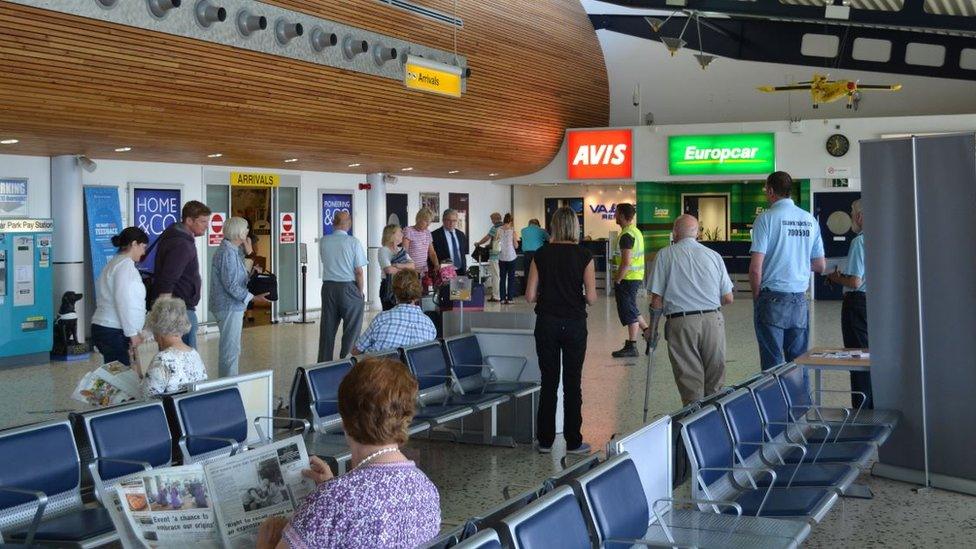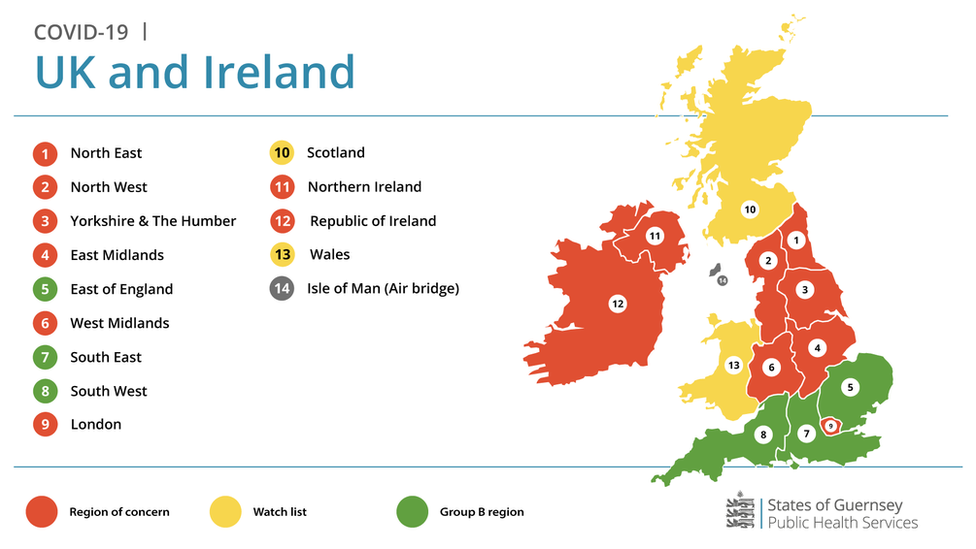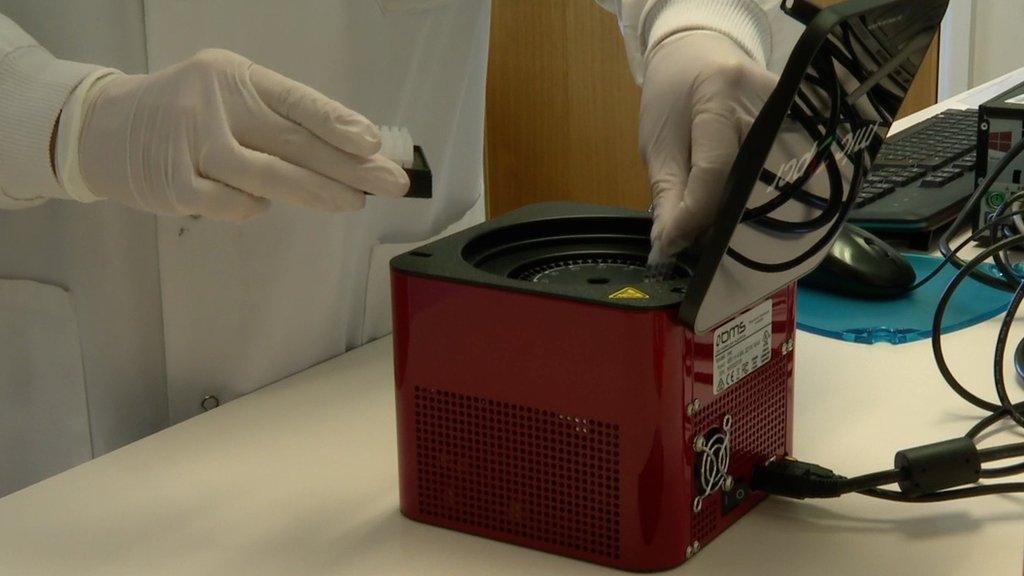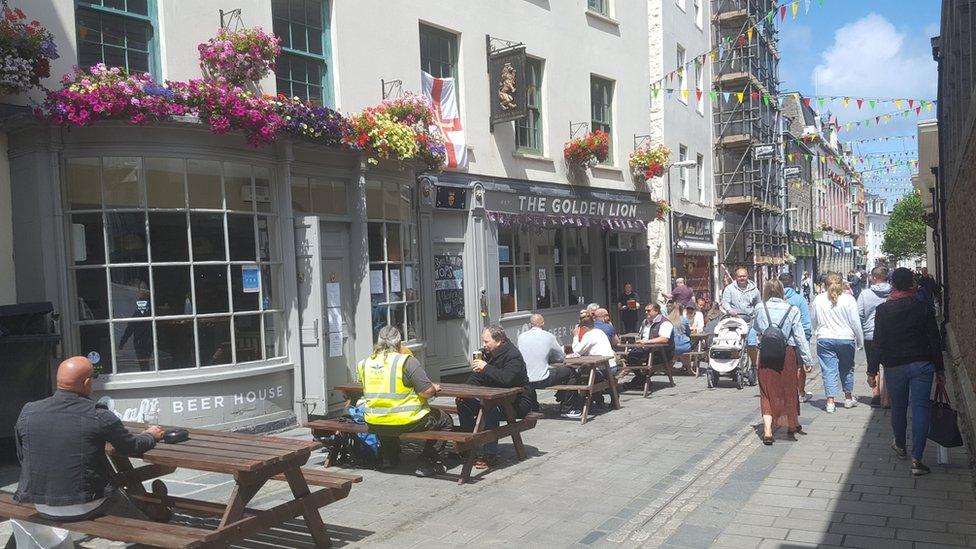Coronavirus: Guernsey to enforce 14-day quarantine for some UK arrivals
- Published

Arrivals will have to self-declare their travel for the week prior to arriving in Guernsey
People arriving in Guernsey from some regions of England will have to self-isolate for 14 days from 15 September.
England will be divided into nine regions, external, the States has confirmed.
The decision was made after virus rates in England exceeded 30 Covid-19 cases per 100,000 last week.
Regions with infection rates below that threshold will remain in Group B, meaning arrivals from these areas will be allowed to leave quarantine if they test negative after seven days.
Currently the regions expected to enter Group A, requiring the full two-week quarantine, are London, West Midlands, East Midlands, North East, North West and Yorkshire and the Humber.
These groups are part of the States three-tiered classification system for jurisdictions based on their coronavirus infection rates.
Director of Public Health Dr Nicola Brink warned islanders the regions were likely to move between Group B and A in the next few weeks "at very short notice" and they may need to self-isolate for longer than "originally anticipated".

England has been split into nine separate regions
Travellers will be required to self-declare the countries or regions they have travelled to or through for the seven days before their travel on arrival.
If a person's travel history is complicated or unclear, they will be initially given a 14-day self-isolation order by the Guernsey Border Agency to avoid delays.
This requirement can then be revised down to seven days after agency staff make contact and establish the full history.
The rules over transit through a Group A country or region have also been clarified by the States.
Two weeks quarantine will not be required if:
They travel in a private vehicle, including taxis, and do not come within two metres of someone they are not travelling with, and no-one new enters their vehicle
They take public transport where it does not stop in the affected region

GLOBAL SPREAD: How many worldwide cases are there?
THE R NUMBER: What it means and why it matters
LOCAL LOCKDOWNS: What happens if you have one?
VACCINE: How close are we to finding one?

- Published7 September 2020

- Published11 June 2020

- Published27 May 2020
